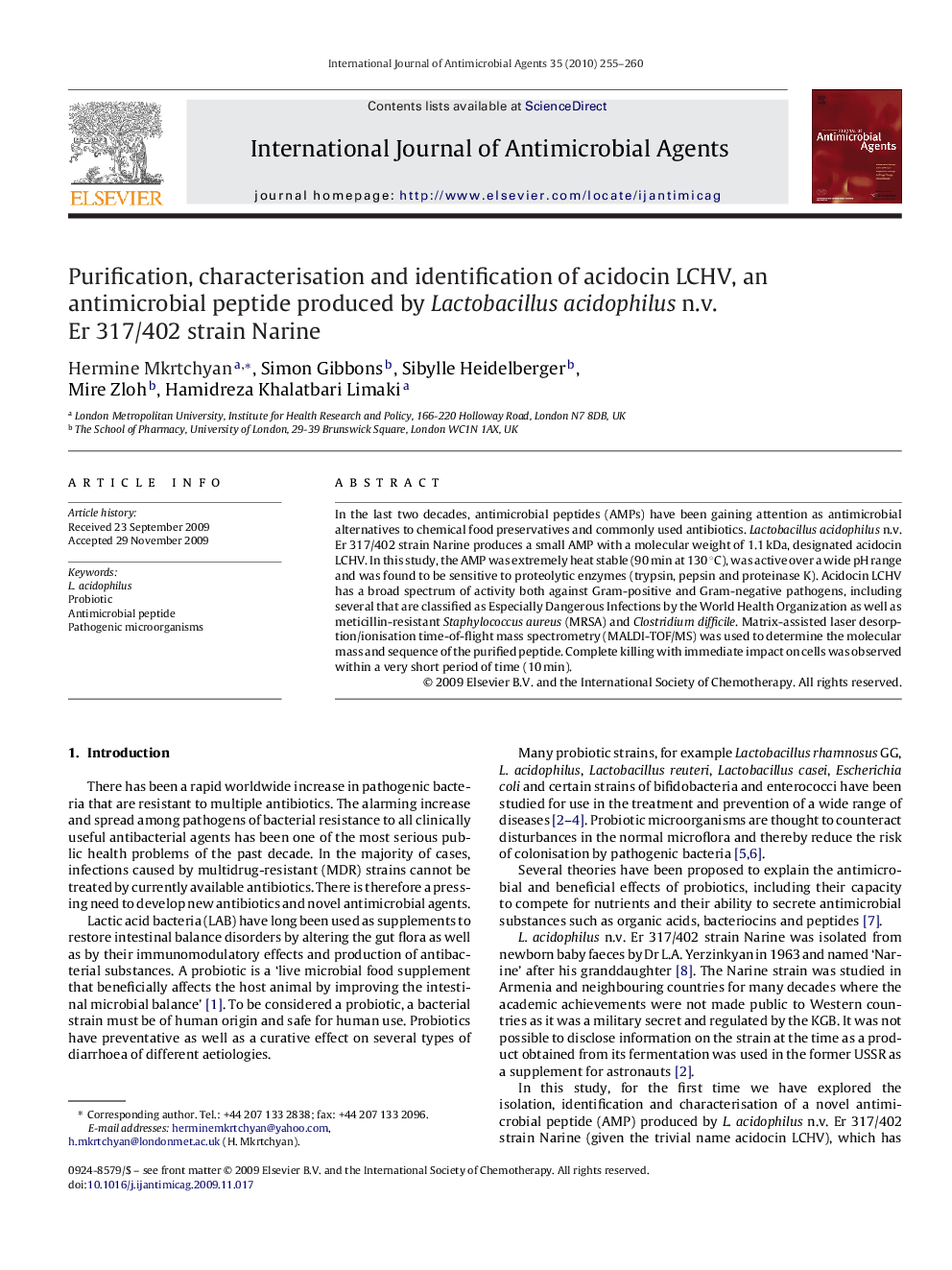| Article ID | Journal | Published Year | Pages | File Type |
|---|---|---|---|---|
| 3359848 | International Journal of Antimicrobial Agents | 2010 | 6 Pages |
In the last two decades, antimicrobial peptides (AMPs) have been gaining attention as antimicrobial alternatives to chemical food preservatives and commonly used antibiotics. Lactobacillus acidophilus n.v. Er 317/402 strain Narine produces a small AMP with a molecular weight of 1.1 kDa, designated acidocin LCHV. In this study, the AMP was extremely heat stable (90 min at 130 °C), was active over a wide pH range and was found to be sensitive to proteolytic enzymes (trypsin, pepsin and proteinase K). Acidocin LCHV has a broad spectrum of activity both against Gram-positive and Gram-negative pathogens, including several that are classified as Especially Dangerous Infections by the World Health Organization as well as meticillin-resistant Staphylococcus aureus (MRSA) and Clostridium difficile. Matrix-assisted laser desorption/ionisation time-of-flight mass spectrometry (MALDI-TOF/MS) was used to determine the molecular mass and sequence of the purified peptide. Complete killing with immediate impact on cells was observed within a very short period of time (10 min).
